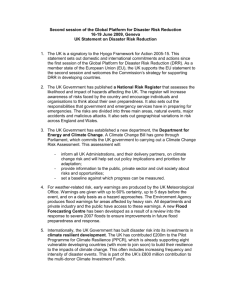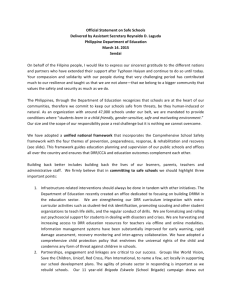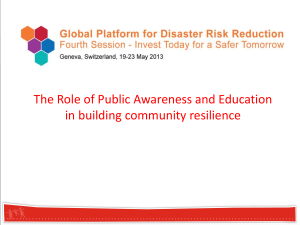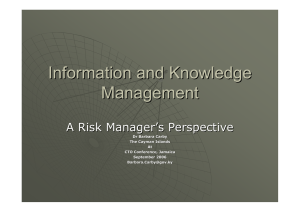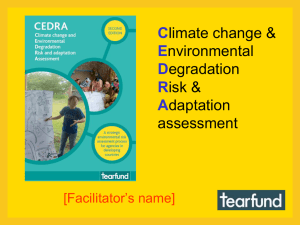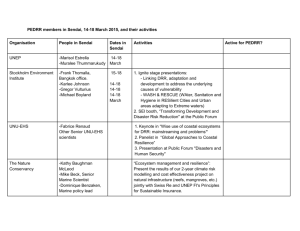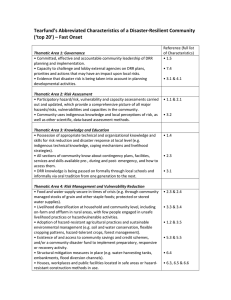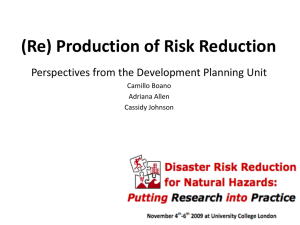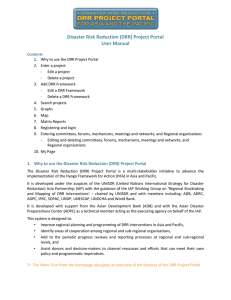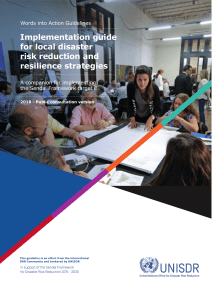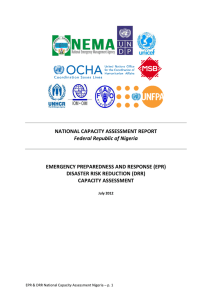– Challenges in connecting Taking Stock DRR policy and practice
advertisement
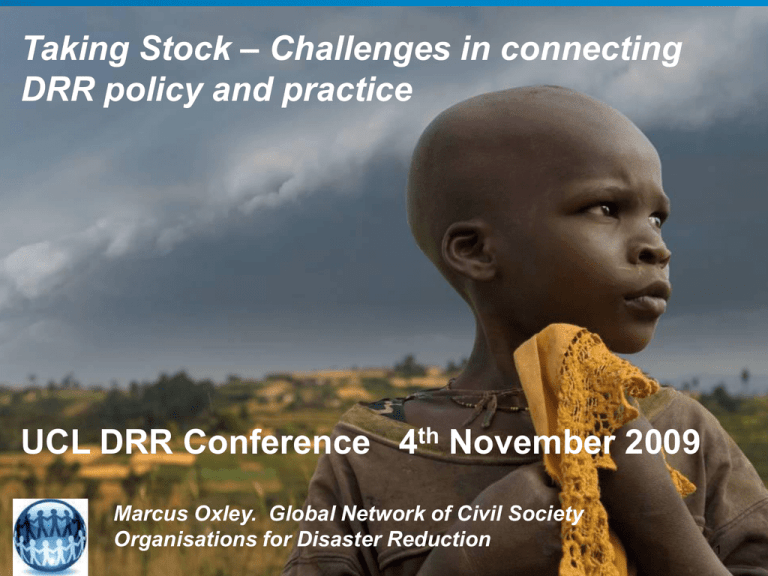
Taking Stock – Challenges in connecting DRR policy and practice UCL DRR Conference 4th November 2009 Marcus Oxley. Global Network of Civil Society Organisations for Disaster Reduction 1 Views from the Frontline 2009: “Bottom up” perspective of progress towards implementation of Hyogo Framework 7000 views 400 organisations 48 low, low-middle income countries • Participatory monitoring process • Compliments UNISDR 2009 Global Assessment Report • Connects policy formulation with realities of policy execution 2 “The people I work with every day see many clouds – international initiatives and plans, but very little rain – actual change at the frontline” “Clouds but little rain..” LOCAL PRACTICE 1. There is a significant gap between national and local level action NATIONAL POLICY Results show a „fading-out’ of progress from national level to vulnerable communities and people 5 DRR implementation varies across countries and regions VFL Country Average is 2.38 2. The foundation for building resilience is an awareness and understanding of the risks vulnerable people face. 3. Resources are scarce and considered a major constraints to progress… but there are substantial resources at local level which remain untapped 8 4. At the local-level people understand poverty, disasters and climate change in a holistic way Poverty Disasters Climate Adaptation Common Goal : the security and wellbeing of lives, livelihoods and assets Addressing underlying drivers of vulnerability can reduce poverty, disaster and climate risk Poverty Alleviation DRR Climate Adaptation Climate change is creating “political momentum” for increased investments …. 5. Turning policy into practice means finding the right balance between top-down and bottom-up engagement Need to proactively and systematically deepen engagement and accountability to vulnerable people 6. Difficult to gauge effectiveness of policy interventions without an ability to measure local level change Need to connect measurable inputs at the national level with measurable outputs at the sub-national levels Six findings at the frontline…….. 1. Nationally-formulated policies are not generating widespread changes in local practices. 3. The foundation for reducing vulnerability is an understanding of the risks people face. 2. Resources are scarce and a main constraint to progress… but there are resources at local level which remain untapped. 4. Vulnerable people address disaster risk, climate change and poverty in a holistic way 5. Turning policy into practice means finding the right balance between top-down and bottom-up engagement 6. Cannot measure effectiveness of policy interventions without local monitoring framework and baselines Some questions to consider…. 1. 2. 3. 4. 5. 6. 7. 8. How to proactively and systematically deepen engagement with at-risk communities ? How to raise greater political commitment for building resilient communities ? How to strengthen domestic accountability of national governments to poor vulnerable people ? How to raise customer demand for building resilience ? How to support / resource local institutions and partnerships at scale? Are there common characteristics of climate and disaster-resilient communities ? How can climate smart VCA assess “future” risks ? How to horizontally share good practice and learning ? Global Network of Civil Society Organisations for Disaster Reduction Putting the interests and concerns of vulnerable people at the heart of DRR policy and practice www.globalnetwork-dr.org Benefits of an impartial local-level monitoring and evaluation process 1. Credible evidence-base to link policy and practice 2. Baselines to measure future progress 3. Opens political space for dialogue, building consensus and trust between actors (social capital) 4. Increases awareness of what resilience looks like. 5. Raises “customer demand” for appropriate services 6. Strengthen domestic accountability and transparency 7. Increases political commitment 8. Strengthen local research, analytical and advocacy capacities
